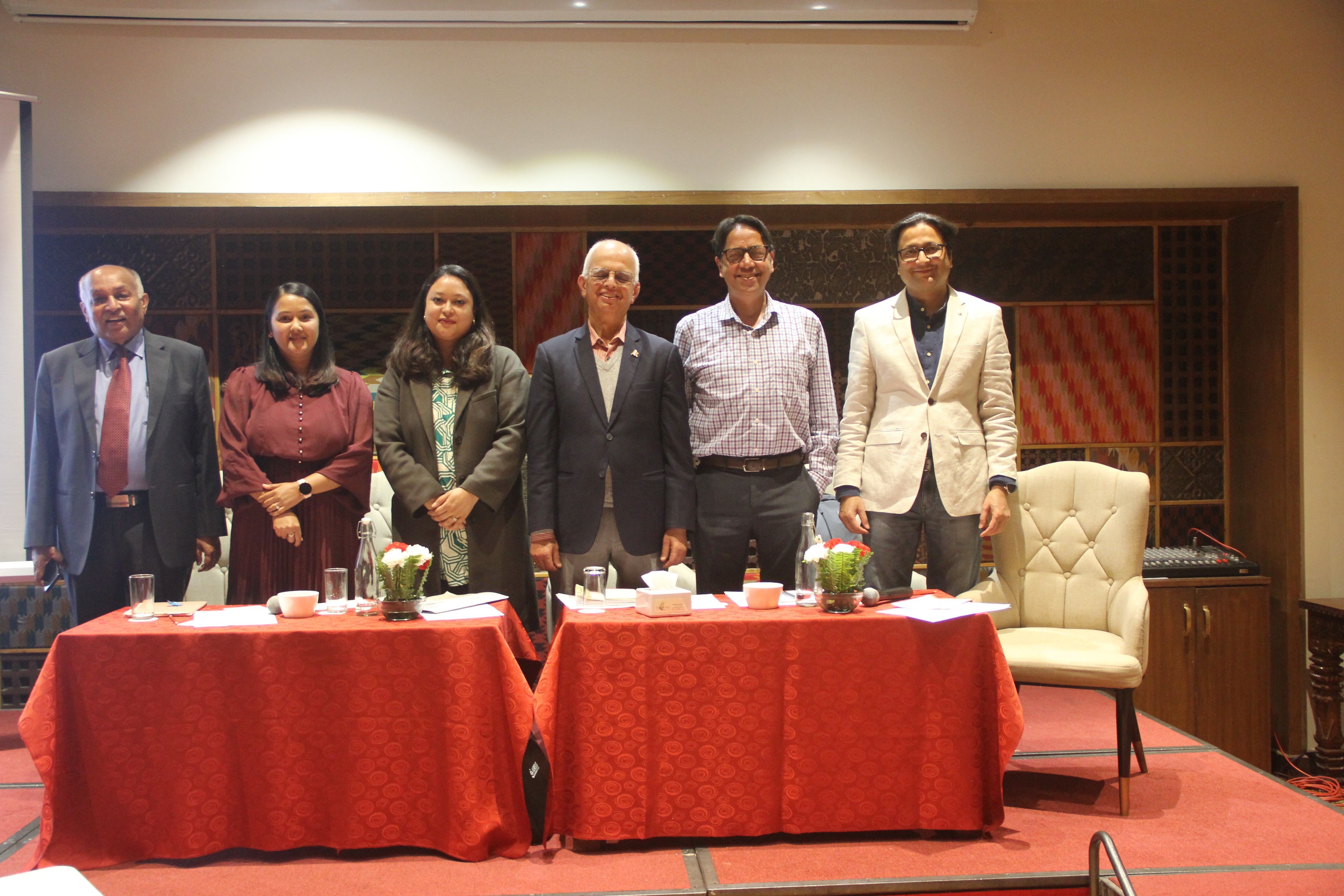KATHMANDU, March 13: Foreign policy experts highlighted the need to critically examine the necessity and approach to redefining Nepal’s foreign policy priorities in a pragmatic manner to capitalize on strategic benefits while upholding strategic autonomy.
Addressing a national seminar, "Contextualizing Nepal’s Foreign Policy and Infrastructure Diplomacy in Changing Context," organized by the Centre for Social Innovation and Foreign Policy (CESIF) in the capital on Tuesday, they called for exploring the motivations and implications of foreign involvement in Nepal's infrastructures. They maintained that it is necessary to forge a national consensus on how the country can effectively leverage foreign interests.
In his special address to the event, former Foreign Minister NP Saud emphasized the need for Nepal to strike a balance between its values and pragmatism, especially in the face of evolving geopolitical changes. He advocated for economic diplomacy and collaboration with friendly nations to enhance connectivity and critical infrastructure development.
Experts advise Nepal to have a clear, proactive foreign policy


In his keynote speech, Ambassador Madhu Raman Acharya highlighted the imperative of a dynamic, principled, independent, and consensus-based foreign policy that aligns with the evolving external environment to fulfill the aspirations of the Nepali people for development.
The seminar proceeded with panel discussions, with the first panel titled "Contextualizing Nepal’s Foreign Policy in the Changing Context," moderated by Ajaya Bhadra Khanal, Research Director at CESIF. Panelists, including Ambassador Dinesh Bhattarai, Akhilesh Upadhyay, Apekshya Shah and Niha Pandey delved into Nepal's foreign policy amidst domestic political instability and the competition between India and China.
Suggestions were made to expand foreign policy considerations to include issues such as gender, inclusion, and climate, while emphasizing Nepal's strategic autonomy and national interests in the multipolar world.
Participants raised concerns about inconsistent foreign policy due to changing governments and party ideologies in Nepal. Ambassador Vijay Kant Karna questioned Nepal's alignment with authoritarian countries, receiving responses emphasizing the importance of a principled position in international issues.
The second panel, "Navigating Geopolitics and Leveraging Infrastructure for Development," moderated by Arpan Gelal, Research Coordinator at CESIF, discussed the role of infrastructure projects in Nepal. Panelists, including Rameshore Khanal, Lal Shankar Ghimire, Dinesh Kumar Ghimire, and Dr. Govinda Raj Pokharel, explored the dynamics of aid and investment in infrastructure projects, emphasizing the need for strict monitoring to safeguard national interests.
In his opening remarks to the event, Ambassador Karna underscored the importance of Nepal leveraging its unique geopolitical position to advance a practical foreign policy while maintaining strategic autonomy. The overarching theme of the seminar underscored the imperative of a dynamic and forward-thinking foreign policy grounded in national interest and transparency.


_20240313151708.jpg)



































